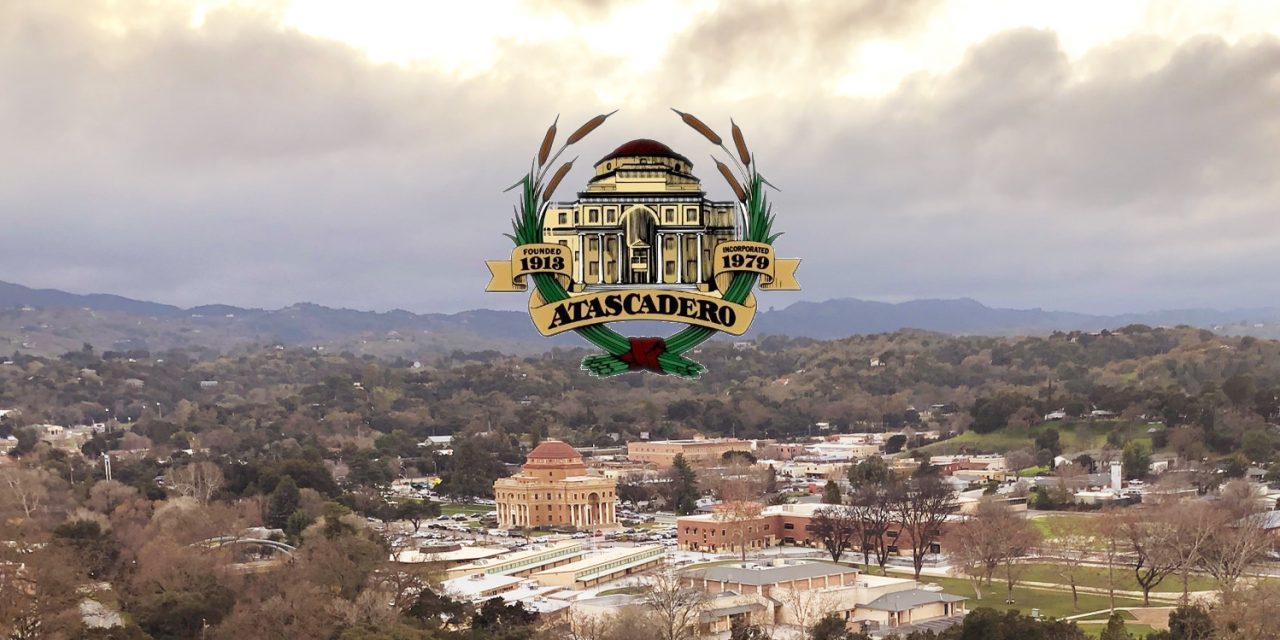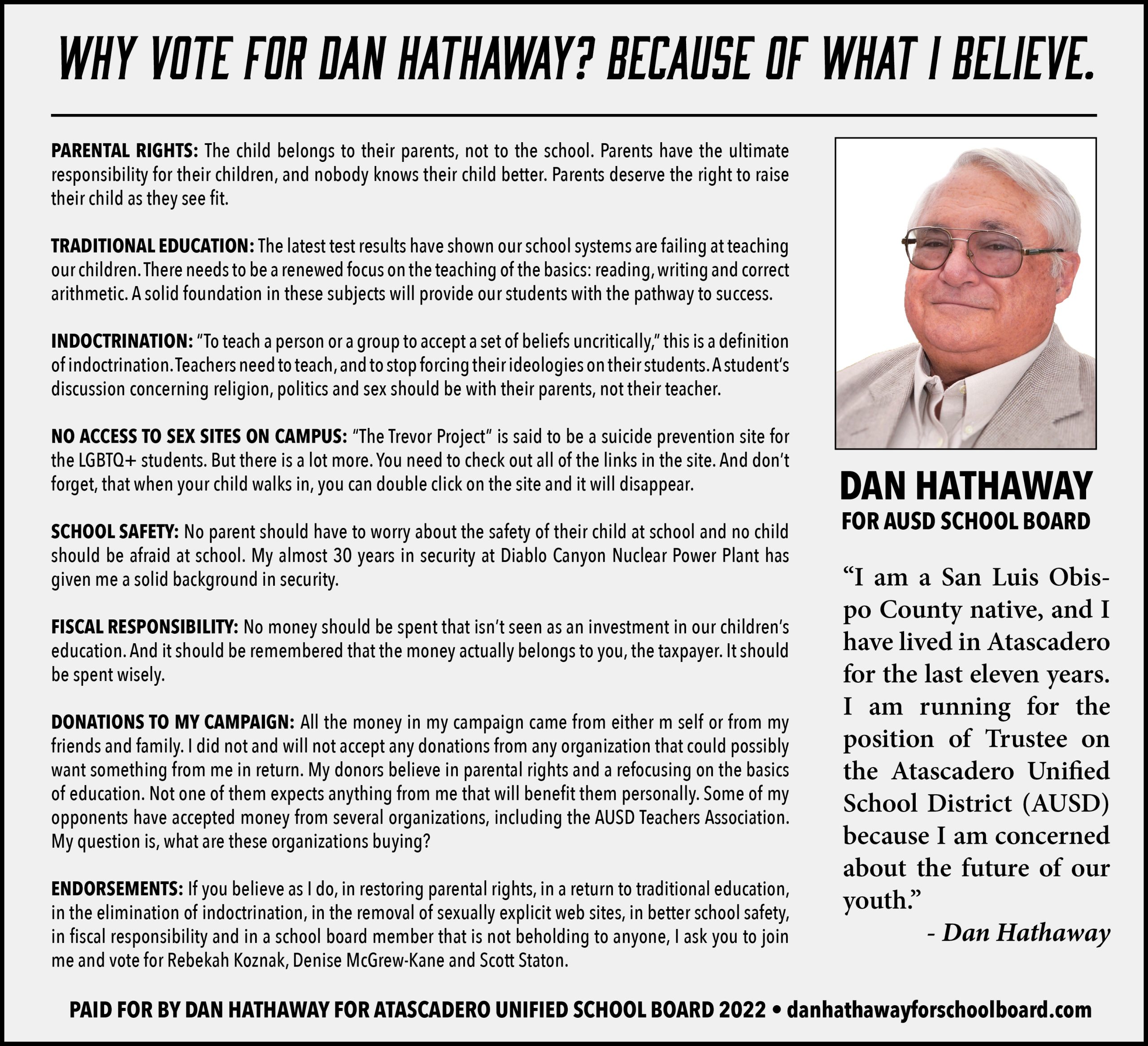City informs property owners of potential rate hikes; residents may file protests under Proposition 218 ahead of June10 public hearing
By Hayley Mattson
Publisher, Editor In Chief
ATASCADERO — Following last week’s City Council meeting, Atascadero’s Public Works Department has mailed detailed notices to property owners connected to the city’s wastewater system, outlining proposed rate increases and informing them of their right to protest under Proposition 218.
The rate-hike proposal marks a pivotal effort to modernize Atascadero’s aging wastewater infrastructure, which serves about 5,500 parcels within the city’s 2,000-acre urban core. While Atascadero spans over 15,000 acres, most properties outside the core rely on private septic systems. City officials say the wastewater system— originally inherited from the Atascadero County Sanitation District in 1982 — has seen little modernization since and no longer meets the state’s environmental standards.
“We can’t afford to keep kicking the can down the road,” City Manager Jim Lewis said during last week’s meeting. “Eventually, it will cost more, and we still won’t have met the necessary regulatory standards. We must move forward with a new wastewater plan.”
Currently, the city operates a Water Reclamation Facility (WRF) near the Chalk Mountain Golf Course. The WRF treats up to 1.4 million gallons of wastewater daily using an aerobic lagoon, six percolation ponds, and infrastructure that reclaims water for golf course irrigation. The system also handles waste from the Atascadero State Hospital. However, city officials say the system — supported by 66 miles of sewer pipeline and 12 pump stations — is strainedby increased demands and outdated equipment.
Unlike some municipalities that base sewer fees on winter water usage, Atascadero uses a flat rate based on Equivalent Dwelling Units (EDUs). One EDU is equivalent to the average daily wastewater output of a single-family home (240 gallons). Apartment units are billed at 0.75 EDUs, while small restaurants are assessed at 4 EDUs due to higher waste volume. Currently, approximately 8,500 EDUs are billed through annual property tax rolls at a rate of $48.15 per month — an increase enacted in July 2023 as part of a five-year plan. Before that, rates had not changed since 1994.
Despite these updates, opposition surfaced during the recent council meeting, especially from business owners stillimpacted by ongoing construction along El Camino Real.
“I just don’t know if this is something I’ll ever get behind,” said Councilmember Seth Peek, who cast the only dissenting vote. “As a representative of this business community, I’m not 100% on this … it’s a tough pill to swallow.”
Mayor Charles Bourbeau acknowledged the concerns, but emphasized the importance of moving forward. “Nobody’s thrilled about raising rates,” he said, “but we have to avoid setting ourselves further back.”
In accordance with Proposition 218 — a California law passed in 1996 — property owners have the right to protest the proposed rate hike. To be counted, written protests must include the property’s address or assessor’s parcel number (APN), the printed name and wet signature of the property owner, the date signed, and a certification that the information is true and correct.
Protests must be submitted in a sealed envelope labeled “Attn: Protest Wastewater Rate Increase” and can be mailed, hand-delivered, or placed in the secure drop box at City Hall. All protests must be received before the close of the public hearing, scheduled for Monday, June 10, at the Atascadero City Council Chambers. Public testimony will be accepted before the hearing is closed.
If more than 50% of affected property owners submit valid protests, the rate increase cannot proceed. If the protest threshold is not met, the City Council will vote to adopt the proposed rates. If approved, the new rates will take effect on or after July 10 and will appear on property tax bills issued after July 15.
The city maintains that the proposed increase is critical to ensure continued safe operations, regulatory compliance, and preparation for future growth. The Wastewater Division is responsible for serving both residential and commercial customers, maintaining lateral lines, and ensuring environmentally sound practices throughout the system.
Atascadero’s rate increase proposal comes amid a broader wave of infrastructure reinvestment efforts across the Central Coast, with cities like San Luis Obispo and Paso Robles also considering wastewater rate hikes this year.
To file a protest, property owners must complete the following steps, as outlined on the city’s website:
- Clearly state opposition to the proposed rate increases.
- Include the location of the identified parcel (street address or APN).
- Provide the printed name and original (wet) signature of the property owner.
- Date the protest form.
- Certify that the information provided is true and correct.
Written protests may be submitted:
- By mail to: City of Atascadero, Public Works Department, Attn: Protest Wastewater Rate Increases
- In person at City Hall or dropped off in the secure lobby drop box
- During the Public Hearing on June 10
For additional information or questions, residents are encouraged to contact the Public Works Department at (805) 470-3456 or attend the public hearing.
















